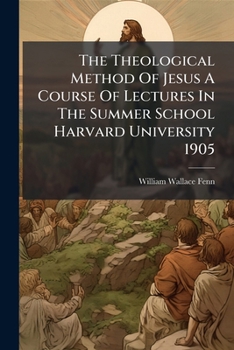The Theological Method Of Jesus A Course Of Lectures In The Summer School Harvard University 1905
Delve into the profound theological insights of Jesus with "The Theological Method Of Jesus A Course Of Lectures In The Summer School Harvard University 1905" by William Wallace Fenn. This series of lectures, originally delivered at Harvard University's summer school in 1905, explores Jesus' unique approach to theological discourse and teaching.
Fenn meticulously examines the methods employed by Jesus in conveying spiritual truths, offering readers a comprehensive understanding of the historical and intellectual context of his teachings. This book provides invaluable insights for theologians, historians, and anyone interested in a deeper exploration of Christian thought.
Experience the enduring value of these lectures, which illuminate the theological foundations of Christianity and offer a fresh perspective on the teachings of Jesus. "The Theological Method Of Jesus" remains a significant contribution to theological scholarship and continues to inspire thoughtful reflection on the nature of faith and reason.
This work has been selected by scholars as being culturally important, and is part of the knowledge base of civilization as we know it. This work was reproduced from the original artifact, and remains as true to the original work as possible. Therefore, you will see the original copyright references, library stamps (as most of these works have been housed in our most important libraries around the world), and other notations in the work.
This work is in the public domain in the United States of America, and possibly other nations. Within the United States, you may freely copy and distribute this work, as no entity (individual or corporate) has a copyright on the body of the work.
As a reproduction of a historical artifact, this work may contain missing or blurred pages, poor pictures, errant marks, etc. Scholars believe, and we concur, that this work is important enough to be preserved, reproduced, and made generally available to the public. We appreciate your support of the preservation process, and thank you for being an important part of keeping this knowledge alive and relevant.





